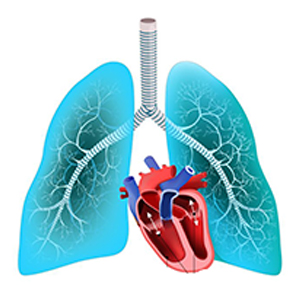Pulmonary artery hypertension (PAH) is a condition where the pressure in the pulmonary arteries, becomes abnormally high. This can occur due to various reasons, including heart conditions, lung diseases, and genetic disorders. As the pressure in the pulmonary arteries increases, the right side of the heart has to work harder to pump blood into the lungs, leading to right ventricular failure and potentially fatal complications. As per Pulmonary artery hypertension (PAH) doctor in Vijayawada, symptoms of PAH include shortness of breath, fatigue, chest pain, and swelling in the legs and feet. If left untreated, PAH can lead to right ventricular failure, cor pulmonale, and ultimately death. Treatment options for PAH include medications that dilate the blood vessels, reduce blood pressure, and improve cardiac function. Lung transplantation may also be considered in severe cases. Early diagnosis and treatment are crucial to manage PAH effectively and improve quality of life in Pulmonary artery hypertension (PAH) Hospital in Vijayawada.
Causes:
- Primary PAH: This is the most common form of PAH, accounting for approximately 50% of cases. The exact cause of primary PAH is unknown, but it is thought to be related to genetic mutations, environmental factors, and hormonal imbalances.
- Secondary PAH: This type of PAH occurs secondary to another underlying condition, such as chronic lung disease, heart disease, or liver disease.
- Chronic lung disease: Conditions such as chronic obstructive pulmonary disease (COPD) and cystic fibrosis can increase the risk of developing PAH.
- Congenital heart defects: Certain congenital heart defects can increase the risk of developing PAH.
- Sleep apnea: Obstructive sleep apnea can increase the risk of developing PAH.
Understanding the causes of PAH is essential for effective diagnosis and treatment by Lung Specialist in Vijayawada

Risk factors:
- Genetic mutations: Certain genetic mutations, such as those affecting the BMPR2 gene, can increase the risk of developing PAH.
- Family history: Having a family history of PAH or other pulmonary vascular diseases can increase the risk of developing the condition.
- Chronic lung disease: Conditions such as chronic obstructive pulmonary disease (COPD), pulmonary fibrosis, and sleep apnea can increase the risk of developing PAH.
- High altitude: Living at high altitudes can increase the risk of developing PAH due to the lower oxygen levels.
- Connective tissue disease: Certain connective tissue disorders, such as scleroderma and lupus, can increase the risk of developing PAH and needs prompt treatment by Pulmonary artery hypertension (PAH) specialist in Vijayawada.
- Smoking
Treatment:
- Medications
- Oxygen therapy: Supplemental oxygen is prescribed to improve oxygen levels in the blood.
- Lung transplantation: In severe cases, lung transplantation may be necessary to replace the damaged lung tissue.
- Pulmonary vasodilators: Medications are used to dilate the blood vessels and reduce pressure.
- Endothelin receptor antagonists: Medications are used to block the production of endothelin, a potent vasoconstrictor.
- Combination therapy: A combination of medications is often used to achieve optimal results.
It is essential for individuals with PAH to work closely with their healthcare provider to develop a personalized treatment plan that addresses their specific needs and symptoms. Get the best Pulmonary artery hypertension (PAH) treatment in Vijayawada by Dr Sri Teja Bollu, Chronic Cough Doctor in Vijayawada at Lung Hospital in Vijayawada
Newsletter
Subscribe our Newsletter to get new updates
